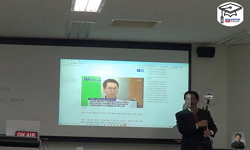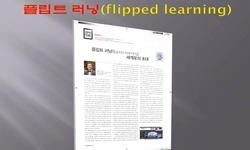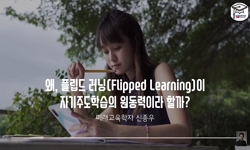The purpose of this study is to investigate the effects of integrated English reading and writing classes using flipped learning on Korean university students’ reading ability. This study involved the development of flipped leaning model for integra...
http://chineseinput.net/에서 pinyin(병음)방식으로 중국어를 변환할 수 있습니다.
변환된 중국어를 복사하여 사용하시면 됩니다.
- 中文 을 입력하시려면 zhongwen을 입력하시고 space를누르시면됩니다.
- 北京 을 입력하시려면 beijing을 입력하시고 space를 누르시면 됩니다.
https://www.riss.kr/link?id=A106484525
- 저자
- 발행기관
- 학술지명
- 권호사항
-
발행연도
2019
-
작성언어
-
- 주제어
-
KDC
370
-
등재정보
KCI등재
-
자료형태
학술저널
- 발행기관 URL
-
수록면
131-152(22쪽)
-
KCI 피인용횟수
0
- DOI식별코드
- 제공처
-
0
상세조회 -
0
다운로드
부가정보
다국어 초록 (Multilingual Abstract)
The purpose of this study is to investigate the effects of integrated English reading and writing classes using flipped learning on Korean university students’ reading ability. This study involved the development of flipped leaning model for integrated English reading and writing teaching and learning. The experiment was implemented for 15 weeks with 113 Korean university students. Fifty-seven of them took integrated English reading and writing classes using flipped learning as an experimental group and the others took integrated English reading and writing classes traditionally as a control group. The results were as follows. First, the experimental group showed more improvement in their English reading ability than the control group, which showed a statistical difference between the both. This suggested that integrated English reading and writing using flipped learning was effective in college English classes. Second, students’ opinions toward the class revealed that students participated in the classes more actively through the integrated and cooperative learning activities. Therefore, it is concluded that integrated English reading and writing classes using flipped learning can be an effective teaching method. Based on this study, some guidelines for effective English reading and writing classes were suggested.
참고문헌 (Reference)
1 임주영, "플립형 과정중심 에세이 지도가 대학생 영작문 성적향상에 미치는 영향" 한국영어교과교육학회 14 (14): 155-180, 2015
2 김경훈, "플립러닝을 활용한 영어독해능력 향상에 관한 연구" 사단법인 아시아문화학술원 9 (9): 53-62, 2018
3 이동엽, "플립드 러닝(Flipped Learning) 교수학습 설계모형 탐구" 한국디지털정책학회 11 (11): 83-92, 2013
4 이윤, "초등학생의 영어 스펠링 쓰기와 읽기 능력" 한국초등영어교육학회 15 (15): 87-112, 2009
5 정명기, "초등 영어 스마트 교육을 위한 플립드 교수·학습 모형의 개발 및 적용" 한국교원대학교 대학원 2015
6 김혜리, "영어동시 활용 초등영어 읽기 - 쓰기 연계학습에 대한 연구" 한국초등영어교육학회 15 (15): 147-183, 2009
7 임정완, "영어과 예비교사를 위한‘거꾸로 교실’ 수업 모형과 적용" 한국영어어문교육학회 21 (21): 157-173, 2015
8 이승은, "대학 영어수업에서 거꾸로 학습(Flipped Learning) 적용 사례 - 실패내성과 선호도 중심으로" 21세기영어영문학회 28 (28): 289-316, 2015
9 김진규, "고등학교 영어 읽기-쓰기 기능 통합지도가 영어독해력 향상에 미치는 영향" 5 (5): 75-87, 2010
10 권영환(부산교육대학교), 김명희(백산초등학교), "각운 유추훈련을 활용한 초등학생의 영어 단어읽기와 쓰기 학습의 효과" 한국외국어교육학회 10 (10): 1-19, 2003
1 임주영, "플립형 과정중심 에세이 지도가 대학생 영작문 성적향상에 미치는 영향" 한국영어교과교육학회 14 (14): 155-180, 2015
2 김경훈, "플립러닝을 활용한 영어독해능력 향상에 관한 연구" 사단법인 아시아문화학술원 9 (9): 53-62, 2018
3 이동엽, "플립드 러닝(Flipped Learning) 교수학습 설계모형 탐구" 한국디지털정책학회 11 (11): 83-92, 2013
4 이윤, "초등학생의 영어 스펠링 쓰기와 읽기 능력" 한국초등영어교육학회 15 (15): 87-112, 2009
5 정명기, "초등 영어 스마트 교육을 위한 플립드 교수·학습 모형의 개발 및 적용" 한국교원대학교 대학원 2015
6 김혜리, "영어동시 활용 초등영어 읽기 - 쓰기 연계학습에 대한 연구" 한국초등영어교육학회 15 (15): 147-183, 2009
7 임정완, "영어과 예비교사를 위한‘거꾸로 교실’ 수업 모형과 적용" 한국영어어문교육학회 21 (21): 157-173, 2015
8 이승은, "대학 영어수업에서 거꾸로 학습(Flipped Learning) 적용 사례 - 실패내성과 선호도 중심으로" 21세기영어영문학회 28 (28): 289-316, 2015
9 김진규, "고등학교 영어 읽기-쓰기 기능 통합지도가 영어독해력 향상에 미치는 영향" 5 (5): 75-87, 2010
10 권영환(부산교육대학교), 김명희(백산초등학교), "각운 유추훈련을 활용한 초등학생의 영어 단어읽기와 쓰기 학습의 효과" 한국외국어교육학회 10 (10): 1-19, 2003
11 University of Texas at Austin Center for Teaching and Learning, "What is the Flipped Classroom?"
12 Choi, Y. H., "Transfer of literacy skills from Korean to English" 50 (50): 71-96, 1995
13 Janopoulos, M., "The relationship of pleasure reading and second language writing proficiency" 20 (20): 763-768, 1986
14 Doman, E., "The flipped and non-flipped EFL classroom : Initial reactions from Chinese university students" 27 (27): 13-43, 2014
15 Li, L. L., "The application of flipping classroom model in English Language Teaching" 20 : 116-117, 2013
16 Silberstein, S., "Techniques and resources in teaching reading" Oxford University Press 1994
17 Ferris, D., "Teaching ESL composition: Purposes, process, and practice" Lawrence Erlbaum 1998
18 Carson, J., "Sustained content teaching: Developing academic skills in ESL/EFL writing clases" Houghton Mifflin 19-34, 2000
19 Han, Y. J., "Successfully Flipping the ESL Classroom for Learner Autonomy" 2 (2): 98-193, 2015
20 Carson, J., "Reading-writing relationship in first and second language" 24 (24): 245-266, 1990
21 Leki. I., "Reading in the composition classroom: Second language perspectives" Heinle & Heinle 9-32, 1993
22 Flahive, D., "Reading in the composition classroom" Heinle & Heinle 128-140, 1993
23 최연희, "Reading and writing relations in Korean high school EFL students: Focused on English reading journal writing" 한국외국어교육학회 13 (13): 215-246, 2006
24 Kern, R., "Literacy and language teaching" Oxford University Press 2000
25 Widdowson, H. G., "Learning purpose and language use" Oxford University Press 1983
26 Maureen J. Lage, "Inverting the Classroom: A Gateway to Creating an Inclusive Learning Environment" Informa UK Limited 31 (31): 30-43, 2000
27 Tierney, R., "Handbook of reading research" Longman 246-280, 1991
28 Troy, C., "Flipping your English class to reach all learners" Routledge 2014
29 서예은, "Flipped Learning을 활용한 협동학습이 영어 성취도와 수업만족도에 미치는 영향" 인하대학교 교육대학원 2015
30 Bergman, J., "Flip your classroom: Reach every student in every class every day" International Society for Technology in Education 2012
31 Grabe, W., "Exploring the dynamics of second language writing" Cambridge University Press 242-262, 2003
32 Shim, Jaewoo, "Exploring Reading and Writing Connection: A Structural Equation Modeling Approach" 한국영어교육학회 59 (59): 59-74, 2004
33 Johnson, L., "Effect of the flipped classroom model on a secondary comnputer applications course: student and teacher perceptions, questions and student achievement" University of Louisville 2012
34 송미정, "EFL 상황에서 영어 읽기와 쓰기의 관계에 대한 연구" 고려대학교 교육대학원 2003
35 Prensky, M., "Digital natives, digital immigrants" 9 (9): 1-6, 2001
36 Horiba, Y., "Comprehension processes in L2 reading : Language competence, textual coherence, and inferences" 18 (18): 433-373, 1996
37 Tsang, W. K., "Comparing the effects of reading and writing on writing proficiency" 17 : 210-223, 1996
38 Shanahan, T., "An analysis and comparison of theoretical models of the reading-writing relationship" 78 : 116-123, 1986
39 Hamdan, N., "A review of flipped learning"
40 성기완, "A Case Study on a Flipped Classroom in an EFL Content Course" 한국멀티미디어언어교육학회 18 (18): 159-187, 2015
동일학술지(권/호) 다른 논문
-
Suprasegmental Instruction and the Improvement of EFL Learners’ Listening Comprehension
- 한국영어어문교육학회
- On-Soon Lee(이온순)
- 2019
- KCI등재
-
- 한국영어어문교육학회
- 권은미(Kwon, Eun-mi )
- 2019
- KCI등재
-
메타 분석을 통한 수준별 영어 수업의 효과 크기 분석: 언어의 네 가지 기능을 중심으로
- 한국영어어문교육학회
- 박옥희(Park, OkHee)
- 2019
- KCI등재
-
- 한국영어어문교육학회
- Youngsu Kim(김영수)
- 2019
- KCI등재
분석정보
인용정보 인용지수 설명보기
학술지 이력
| 연월일 | 이력구분 | 이력상세 | 등재구분 |
|---|---|---|---|
| 2026 | 평가예정 | 재인증평가 신청대상 (재인증) | |
| 2020-01-01 | 평가 | 등재학술지 유지 (재인증) |  |
| 2017-01-01 | 평가 | 등재학술지 유지 (계속평가) |  |
| 2013-01-01 | 평가 | 등재학술지 유지 (등재유지) |  |
| 2010-01-01 | 평가 | 등재학술지 유지 (등재유지) |  |
| 2008-01-01 | 평가 | 등재학술지 유지 (등재유지) |  |
| 2005-03-22 | 학술지등록 | 한글명 : 영어어문교육외국어명 : English Language & Literature Teaching |  |
| 2005-01-01 | 평가 | 등재학술지 선정 (등재후보2차) |  |
| 2004-01-01 | 평가 | 등재후보 1차 PASS (등재후보1차) |  |
| 2002-07-01 | 평가 | 등재후보학술지 선정 (신규평가) |  |
학술지 인용정보
| 기준연도 | WOS-KCI 통합IF(2년) | KCIF(2년) | KCIF(3년) |
|---|---|---|---|
| 2016 | 0.75 | 0.75 | 0.68 |
| KCIF(4년) | KCIF(5년) | 중심성지수(3년) | 즉시성지수 |
| 0.71 | 0.66 | 1.12 | 0.12 |




 KCI
KCI 스콜라
스콜라






